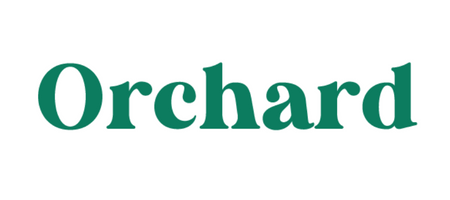Article Summary:
-
Pasture-raised eggs come from hens with extensive outdoor access, leading to better nutritional profiles and welfare, while free-range eggs offer limited outdoor access.
-
Pasture-raised eggs are richer in vitamins A, D, E, and K, omega-3 fatty acids, and have a better omega-6 to omega-3 ratio, contributing to improved health.
-
Pasture-raised eggs are more expensive but can be conveniently ordered online from suppliers like Orchard Food, offering a premium product with enhanced nutritional value and ethical farming practices.
When shopping for eggs, consumers are often faced with a variety of labels, including "pasture-raised" and "free-range." While both terms suggest that hens have access to the outdoors, there are significant differences in the living conditions and care of the hens that produce these eggs. Pasture-raised eggs come from hens that spend most of their time outdoors, roaming freely on pasture where they can forage for grasses and insects. In contrast, free-range eggs are produced by hens that have some access to the outdoors, but this access may be limited and often involves large numbers of birds sharing a small outdoor area. Understanding these differences is crucial for consumers who prioritize animal welfare, nutritional quality, and environmental sustainability. This article will delve into the distinctions between pasture-raised and free-range eggs, exploring their implications for hen welfare, nutritional content, and consumer choice.
Understanding pasture-raised and free-range eggs
Pasture-raised and free-range eggs are often confused with one another due to their similar labels, but they represent distinct approaches to raising hens. Organic pasture-raised eggs come from hens that are raised on pasture, where they have the opportunity to roam freely and engage in natural behaviors such as foraging for grasses, insects, and seeds. This method allows hens to live in a more natural environment, which can lead to better health and welfare outcomes. The term "pasture-raised" typically implies that hens spend a significant portion of their day outdoors, often in mobile coops that are moved to fresh pasture regularly. This approach not only enhances the hens' quality of life but also contributes to more diverse and nutritious eggs.
In contrast, free-range eggs are produced by hens that have some access to the outdoors, but this access may be limited. The term "free-range" does not specify the quality or size of the outdoor area, and it often means that hens have access to a small door or window that leads to a small outdoor enclosure. While this provides some opportunity for hens to engage in natural behaviors, it may not offer the same level of freedom or exposure to diverse forage as pasture-raised systems. Free-range farms can vary significantly in terms of the size of the outdoor area and the number of hens sharing it, which can impact the welfare of the hens.
Understanding these differences is important for consumers who prioritize animal welfare and environmental sustainability. Pasture-raised systems tend to promote more sustainable farming practices by utilizing rotational grazing, which can improve soil health and biodiversity. On the other hand, free-range systems may not offer the same environmental benefits, depending on the specific conditions of the farm. By choosing pasture-raised eggs, consumers are supporting farming practices that align with higher standards of animal welfare and environmental stewardship.
Space requirements for hens
The space requirements for hens differ significantly between pasture-raised and free-range systems. In pasture-raised settings, hens typically have access to large areas of outdoor space where they can roam freely. This allows them to engage in natural behaviors such as foraging, scratching, and exercising. The space is often managed through rotational grazing, where the hens are moved to fresh pasture regularly to ensure they have access to diverse forage and to prevent overgrazing. This approach not only enhances the hens' welfare but also contributes to healthier soil and ecosystems.
In contrast, free-range hens may have limited access to outdoor space. While they are required to have some access to the outdoors, the size and quality of this space can vary greatly. Some free-range farms may provide large outdoor areas, but others might offer only small enclosures or porches that are shared among many hens. This limited space can restrict the hens' ability to engage in natural behaviors and may lead to overcrowding and stress.
The difference in space requirements also affects the density of hens in each system. Pasture-raised farms typically maintain lower hen densities to ensure that each bird has ample space to roam and forage. This lower density helps reduce stress and competition among hens, contributing to better overall health and welfare. In contrast, free-range farms may have higher hen densities, especially if the outdoor space is limited, which can lead to increased stress and health issues among the hens.
Overall, the space available to hens in pasture-raised systems is generally more extensive and conducive to natural behaviors, while free-range systems may offer more variable and often limited outdoor access.
Nutritional benefits of pasture-raised vs. free-range eggs
Pasture-raised eggs offer superior nutritional benefits compared to free-range eggs due to the hens' access to diverse forage and natural diets. Hens raised on pasture consume grasses, insects, and seeds, which enrich the nutritional profile of their eggs. Pasture-raised eggs are notably higher in essential vitamins like A, D, E, and K, as well as omega-3 fatty acids. These nutrients contribute to improved immune function, bone health, and heart health. The eggs also have a better omega-6 to omega-3 ratio, which helps reduce inflammation and supports overall well-being.
Additionally, pasture-raised eggs contain higher levels of choline, a vital nutrient for brain development, muscle control, and memory. Choline also has anti-inflammatory properties and supports cell membrane health. The yolks of pasture-raised eggs are richer in carotenoids such as lutein and zeaxanthin, which are crucial for maintaining eye health and protecting against age-related macular degeneration.
In comparison, free-range eggs may not have the same nutrient density because the hens' outdoor access is often limited and their diets may lack the diversity provided by pasture environments. While free-range eggs still offer some nutritional advantages over conventional eggs, they generally fall short of the robust nutrient profile found in pasture-raised eggs. Choosing pasture-raised eggs ensures a higher quality product that supports both personal health and sustainable farming practices.
Impact on hen welfare and behavior
The impact on hen welfare and behavior differs significantly between pasture-raised and free-range systems. Pasture-raised hens experience improved welfare due to their ability to engage in natural behaviors such as foraging, scratching, and exercising outdoors. This freedom to roam allows them to express their instinctual behaviors, which are essential for their mental and physical health. The diverse environment of pastures also provides hens with a variety of stimuli, reducing boredom and stress.
In contrast, free-range hens may not have the same level of freedom or environmental stimulation. While they have some access to the outdoors, this access can be limited, and the quality of the outdoor space varies widely. In some cases, free-range hens may spend most of their time indoors, with only occasional access to small outdoor areas. This can lead to increased stress and frustration among the hens, as they are unable to fully express their natural behaviors.
The living conditions in pasture-raised systems also tend to be cleaner and healthier, as the hens are moved regularly to fresh pasture. This reduces the buildup of manure and pathogens, creating a cleaner environment that promotes better health outcomes for the hens. In free-range systems, the indoor areas can become crowded and dirty if not properly managed, leading to health issues such as respiratory problems and increased risk of disease.
Overall, pasture-raised systems prioritize hen welfare by providing a more natural and stimulating environment, which supports better health and behavioral outcomes compared to free-range systems. By choosing pasture-raised eggs, consumers are supporting farming practices that prioritize animal welfare and well-being.
Price and accessibility of pasture-raised and free-range eggs
The price and accessibility of pasture-raised and free-range eggs vary significantly, reflecting differences in farming practices and hen welfare. Pasture-raised eggs are generally more expensive, often costing approximately R18.50 more per dozen compared to free-range eggs. This price difference stems from the higher costs associated with providing hens ample outdoor space—typically about 10.03 square meters per bird—and maintaining ethical farming standards. Free-range eggs, while more affordable, offer less outdoor space for hens, which can impact their welfare and the nutritional quality of the eggs.
For consumers seeking pasture-raised eggs in South Africa, Orchard Food provides a convenient solution. They offer high-quality pasture-raised eggs that can be ordered online and delivered directly to your door. This accessibility ensures that even busy individuals can enjoy ethically produced eggs without visiting a store. Orchard Food’s commitment to sustainable farming practices guarantees that their eggs come from hens raised in humane conditions, resulting in a superior product both in taste and nutrition.
While pasture-raised eggs may require a higher financial investment, many consumers find the benefits—such as improved animal welfare and enhanced nutritional value—worth the cost. With services like Orchard Food’s online delivery, accessing these premium eggs has never been easier for health-conscious and eco-friendly shoppers.










